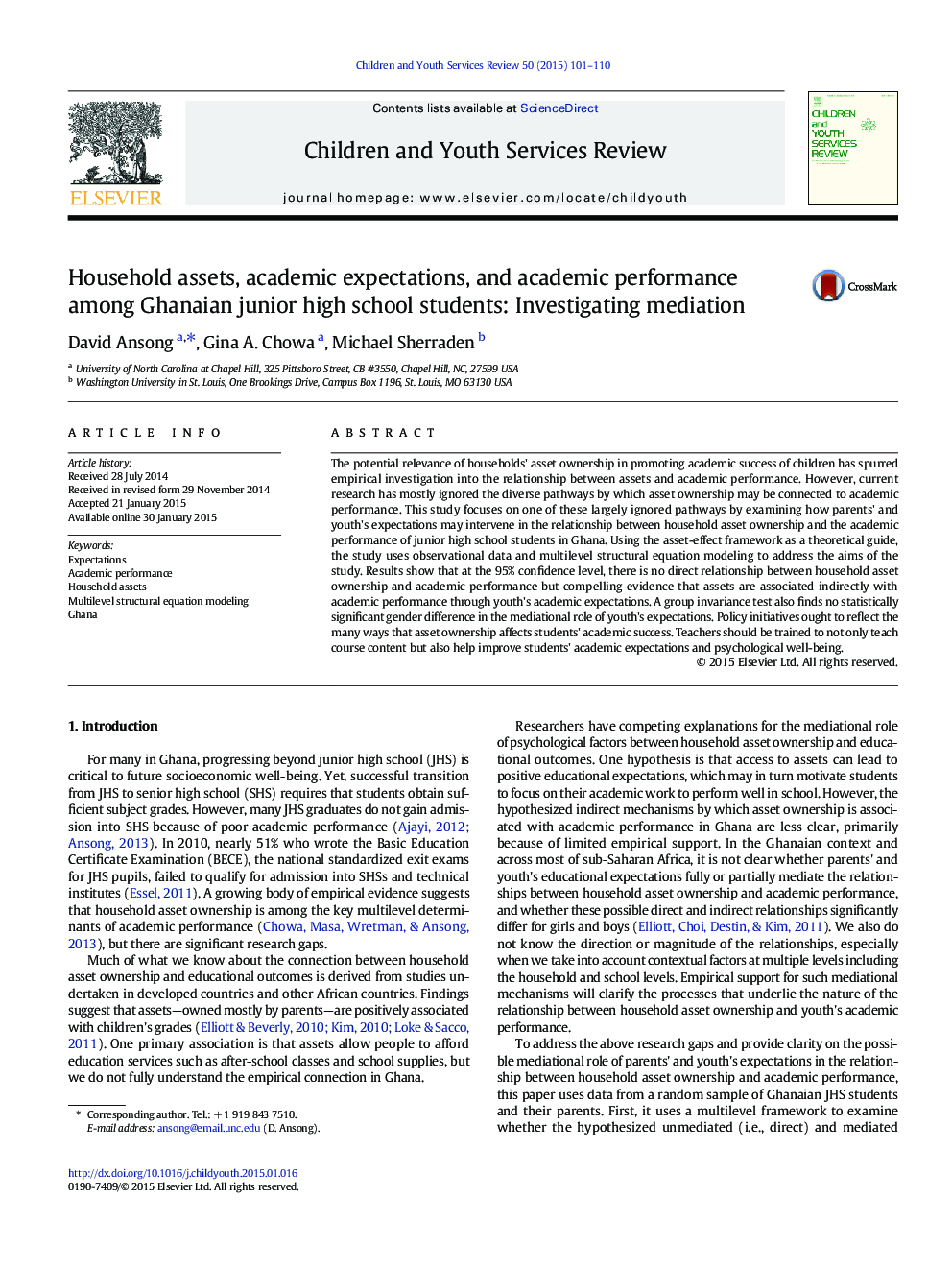| Article ID | Journal | Published Year | Pages | File Type |
|---|---|---|---|---|
| 345992 | Children and Youth Services Review | 2015 | 10 Pages |
•From the asset-effect framework, there are multiple pathways by which household assets are related to academic performance.•Household assets ownership are not directly associated with academic performance among middle school-age students in Ghana.•Household asset ownership are indirectly related to academic performance through youth’s academic expectations.•Multi-group invariance test suggests no significant gender difference in the mediational role of academic expectations.•Education policies that consider asset development initiatives may ensure access to education as well as student enthusiasm.
The potential relevance of households' asset ownership in promoting academic success of children has spurred empirical investigation into the relationship between assets and academic performance. However, current research has mostly ignored the diverse pathways by which asset ownership may be connected to academic performance. This study focuses on one of these largely ignored pathways by examining how parents' and youth's expectations may intervene in the relationship between household asset ownership and the academic performance of junior high school students in Ghana. Using the asset-effect framework as a theoretical guide, the study uses observational data and multilevel structural equation modeling to address the aims of the study. Results show that at the 95% confidence level, there is no direct relationship between household asset ownership and academic performance but compelling evidence that assets are associated indirectly with academic performance through youth's academic expectations. A group invariance test also finds no statistically significant gender difference in the mediational role of youth's expectations. Policy initiatives ought to reflect the many ways that asset ownership affects students' academic success. Teachers should be trained to not only teach course content but also help improve students' academic expectations and psychological well-being.
